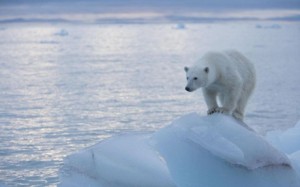Denial
It is perhaps inevitable that you can easily find those in the ranks of football fans who are  representatives of different members of society as a whole. There are the eternal pessimists who will settle for a draw when their team is 2-0 up at home to non-league opposition with five minutes to go. There the eternal optimists who will settle for a draw when their team is 2-0 down away at Manchester United with five minutes to go. Then there are those who are permanently in denial about their team.
representatives of different members of society as a whole. There are the eternal pessimists who will settle for a draw when their team is 2-0 up at home to non-league opposition with five minutes to go. There the eternal optimists who will settle for a draw when their team is 2-0 down away at Manchester United with five minutes to go. Then there are those who are permanently in denial about their team.
I know of one prominent Newcastle supporter, who shall remain nameless, who stated at the end of last season that all that was needed to put things right was for us to sign another striker and all would be well’. Well, Remy has started well so we shall see, but I do feel that the comment above was a classic case of denial; denial that there is anything else wrong with the squad and the club in general’As I write this, in the wake of the 3-2 defeat at Everton we lie 16th in the Premier League; exactly where we finished last season.
I have had many conversations down the years with Newcastle fans who have been in denial, preferring not to see the evidence in front of their eyes. There is a perfectly logical reason for this denial of course. Sometimes having to accept that your team is going to be mid-table at best, especially when their average attendances hover round the 50 000 mark, can be a bitter pill to swallow. Better then perhaps to be in denial, at least until mid-February comes round and Newcastle are 12th in the Premier League, having been dumped out of both cups by lower league opposition.
Now, hopefully we can do better than that this season and the signs that we are taking the League Cup more seriously are welcome. But can we seriously expect to be challenging for Champions League places as we should be, given our average attendances? No, I don’t think so either’. Anyone thinking so is surely in denial. For these fans, the fact that we are probably a mid-table team with at best an outside chance of any success in either domestic cup competition is an inconvenient truth.
Speaking of an inconvenient truth that was of course the title of a film by 2000 Democrat U.S. Presidential candidate Al Gore, about the challenges we all face with global warming and climate change.’ ‘When the film first appeared in 2006, there was a head of steam building up around the issue with more and more people campaigning on it and’ governments starting to take it seriously.
Then came the Copenhagen conference at the end of 2009. The waters had already been muddied by a controversy over research undertaken by East Anglia University and the inability of delegations from different countries to agree to what measures the international community should take. Since then the issue of climate change has slipped down the political agenda of the major industrial nations.
Fast forward to Friday 27th September and we saw the publication of the ‘new ‘Fifth Assessment Report’ by the Intergovernmental Panel on Climage Change (IPCC), dealing with the physical science and the stories it tells us about what is happening to the climates on our planet.
According to a press release from the IPCC “warming in the climate system is unequivocal”. It is also worth noting that while in the 3rd report by the IPCC in 2001 it was stated that human greenhouse gases were the ‘likely’ cause of global warming and climate change (up to 60% probability) and the 4th report in 2007 it was stated that it was ‘very likely’ (up to 90% probability), the new report with new information available, now states that it is ‘extremely likely’ (95-100 % probability) that climate change is being caused by human activity.
Confirming this, Michel Jarraud, Secretary General of the World Meteorological Organisation, stated that “the Report should serve as yet another wake-up call that our activities today will have a profound impact on society not only for us but
for many generations to come”. He added that “we are already seeing a change
in weather patterns and extreme events such as hear waves, droughts and
floods.”
Yet there is still a large amount of denial. Like those who don’t like to accept that Newcastle United are at best a mid-table team, so there are those who don’t like to accept what the science is telling us about climate change. If all those in denial were on the margins of society and the political world then it would not be so serious. However it is a problem when the UK Secretary of State for the Environment, Owen Paterson is amongst the deniers. Speaking at a fringe meeting at the Conservative Party conference in late September, Paterson made a number of worrying statements.
Paterson stated that, “people get very emotional about this subject [climate change] and I think we should just accept that the climate has been changing for centuries.” Now this is of course true, but the changes in recent decades, especially the speed of global warming should be setting alarm bells ringing. Is it really wise to follow the example of Nero and procrastinate, while the earth burns? It surely should also be remembered that this is the first time in the history of the human race that major climate change has taken place. It is not something we should be relaxed about, as it will potentially have enormous consequences for millions of people across the world.
Paterson also stated that, “I think the relief of this latest report is that it shows a really quite modest increase, half of which has already happened. They are talking one to two and a half degrees.”‘ This comment is missing the point entirely. The temperature rise of two and a half degrees is the average across the world.’ However some places are expected to see much greater rises in temperature. One of these is the Arctic. Greater temperature rises are expected in the Arctic and these will result in considerable rises in sea level, so putting at risk millions of homes in low-lying areas. Paradoxically, the release of fresh water from the nearby Greenland ice-cap might switch off the Gulf Stream and so making our climate considerably colder. This leads us on to the next statement from Paterson.
Paterson claims that we should, “remember that for humans, the biggest cause of death is cold in winter, far bigger than heat in summer. It would also lead to longer growing seasons and you could extend growing a little further north into some of the colder areas.”‘ In this way Paterson tries to claim that we will be alright in Britain, so let us not worry about climate change.’ I think Paterson is misguided here on two grounds. Firstly, as mentioned above the release of a large amount of fresh water into the North Atlantic, from the melting of the Arctic and Greenland ice-caps might switch off the benign Gulf Stream and our climate change will actually make us colder.
Secondly, growing seasons in other parts of the world will chnge in unpredictable ways. There are already alarming signs of desertification taking place; this coupled with rising sea levels may see as many as 250 million people across the world having to move, either because their homes are flooded or they cannot grow crops where they previously did. At the end of the day our settlement patterns are where they are for a reason ‘ because thse are the best places to live, partly because it is where a range of useful raw materials are found, but more often because a benign climate makes them pleasant places to live, with good conditions for growing crops. ‘If we mess with the climate, we mess with these settlement patters, causing chaos across the globe.
One more quote was about the seriousness of the situation: “I actually see this report as something we need to take seriously but I am rather relieved that it is not as catastrophic in its forecast as we had been led to believe early on and what it is saying is something we can adapt to over time, and we are very good as a race at adapting.”‘ Now of course there have been reports that the most serious of the projections of temperature rises this century are now thought to be unlikely to materialise, while it is still envisaged that temperatures will rise.’ This had led to climate change sceptics saying that there is consequently no need to spend a lot of money on doing something about the problem, especially when the global economy is still in such difficulies.
However the science is clear. Global warming and climate change are happening and humans are almost certainly responsible. Wouldn’t it be sensible to err on the side of caution and take measures now to ensure that we don’t bequeath a ruined planet to future generations?’ As a human race we really do need to go back to where we were 4 years ago and start planning for how we can limit climate change. Policy makers need to use real imagination and link a sustainable economic recovery to not damaging the environment or causing dangerous warming in the atmosphere.’ Mankind has come up against serious problems before and solved them. Solving the problem of climate change, by limiting its size and effects, is no exception. It can be done.’ All is needed is the political will to make it happen.






Well said, Peter. A lot of the hot air produced by Pardew isn’t helping either. 🙂